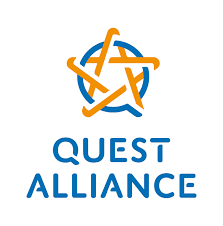
Website Poverty Action Lab
Organization:
J-PAL South Asia
Location:
India
Education:
Bachelor’s
Master’s
Start Date (Earliest):
30 May 2022
Language Requirement:
English, Hindi
Length of Commitment:
Less than one year
The Abdul Latif Jameel Poverty Action Lab (J-PAL) J-PAL was established in 2003 as a research center at the Economics Department at MIT. Since then, it has grown into a global network of researchers who use randomized evaluations to answer critical policy questions in the fight against poverty. J-PAL is propelled by a team dedicated to research, policy, training, and other vital work, supporting J-PAL’s mission to reduce poverty by ensuring that policy is informed by scientific evidence.
J-PAL South Asia, the regional office which is based at the Institute for Financial Management and Research (IFMR) in India, analyses and disseminates research results and builds partnerships with policymakers to ensure that policy is driven by evidence, and that programs proven effective are scaled up. We have a growing number of partnerships in Bangladesh, India, Nepal, Pakistan, and Sri Lanka. For more information on J-PAL SA, please see http://www.povertyactionlab.org/south-asia.
Project Description:
Many poor children around the world underperform in school math. In India, 97% of children now go to school, but less than half of 5th grade children can perform arithmetic beyond 2nd grade level (ASER Centre 2015). In contrast, research in cognitive science reveals that infants and preschool children in different societies, with or without formal education, have an interest in and a shared, intuitive understanding of number and geometry (e.g. Dehaene et al. 2006; Jara-Ettinger et al. 2017; Newcombe and Huttenlocher 2003; Spelke 2011). Moreover, poor kindergarten children can play math games that draw on this understanding as well as more advantaged children do, both in the U.S. (Gilmore, McCarthy, and Spelke 2007, 2010) and India (Dillon et al. 2017).
However, poor children have fewer opportunities to engage in these activities at home (Levine et al. 2010; Pruden, Levine, and Huttenlocher 2011). Because formal math learning depends on this informal learning, this suggests providing more of these experiences in preschool is a potentially cost-effective way to improve subsequent learning outcomes (Levine, Gibson, and Berkowitz, in press; Spelke 2017).
Moreover, with schools shutting down due to Covid-19, children have been out of school for more than a year and while many governments and NGOs have attempted to fill the gap by providing online classes, take-home worksheets etc. essentially necessitating a lot more parental involvement in children’s schooling, such exercises are aimed at children in higher grades. Math Games is an innovative math curriculum that aims to develop children’s intuitive concepts of number and geometry, informed by decades of cognitive development research, and rigorously evaluated through three randomized evaluations in Delhi. We find that children exposed to these games exhibited gains innate as school math skills compared to those who were not exposed to the games. We propose to adapt these game materials for home-based play, qualitatively examine how families understand and use the games through piloting activities in around 30 households. We aim to develop games that are visually even more attractive and have more conventional formats.
The pilot would help us test that out. The home-games pilot will also help develop the games package and refine the ‘delivery mechanism’ that will be tested through RCTs later .
This is an excellent opportunity to obtain a strong understanding of how children learn mathematics, the economic and policy issues relating to early childhood education, and setting up and running small-scale data collection activities.
Research Intern Roles and Responsibilities:
The intern will work closely with academic researchers, Research Associate and other field staff to perform a variety tasks focused on conducting qualitative and quantitative research, but not limited to:
- Assist in piloting, field testing survey questionnaires and data collection software
- Supervise field-based teams consisting of field-based surveyors, data entry operators and
other field and office staff. - Monitoring project implementation and data collection processes
- Data cleaning and management
– Review and vet project datasets and maintain an efficient data documentation system
– Work with other members of the team to reconcile any gaps or errors in the data
- Data analysis and synthesis
– Assist in analysis of qualitative and quantitative data collected during the project’s implementation
- Liaise with members of the project team by sending them statistics as and when required
- Generate aggregated views of the data for various stakeholders – the Principal Investigators, donors and other partners
- Assist in documenting data collection efforts, including any issues and key decisions taken for improvements
- Maintain compliance with all J-PAL protocols and policies.
Desired Qualifications and Experience:
- Bachelor’s/ Master’s degree in economics, public policy, education
- Experience working in education sector preferred
- Ability to work on STATA to organize, clean and analyze data
- Excellent management/ organizational skills and able to solve unexpected problems
- Flexible, self-motivating, independent and manages multiple tasks efficiently
- Ability to deal with unstructured and changing environments
- Attention to detail
Note on Work Authorizations:
Candidates must have work authorization to work in India.
How to Apply
Complete the J-PAL/IPA common application. After completing a brief registration, choose the Research job category, then select “Research Intern- Foundations of Learning – J-PAL South Asia” and include resume, cover letter, transcripts, and two recommendation letters. Note that applications with incomplete submissions will not be considered.
You are able to submit your application before your references complete their recommendation letters; however, you must include their contact information before submitting your application. Given the volume of applications received, only short-listed candidates will be contacted for an interview.
To apply for this job please visit apply.povertyactionlab.org.





